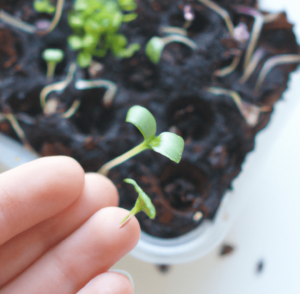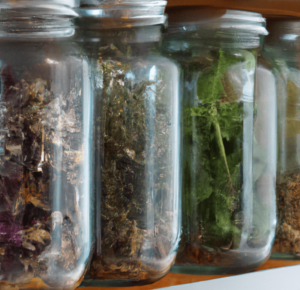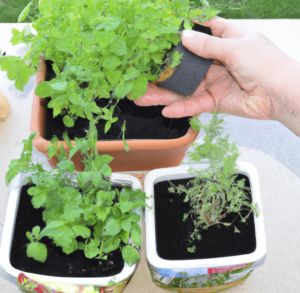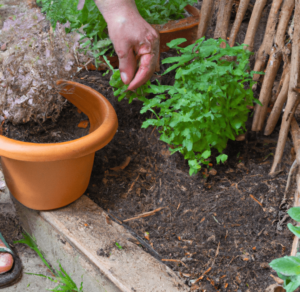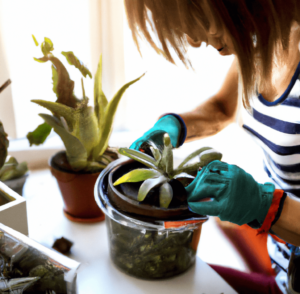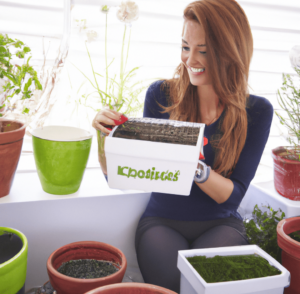Easy access to fresh herbs and lovely plants are only two advantages of having a garden in your condo. Learning how to start a condo in a garden is still challenging. Condo gardening needs careful planning, plant selection, and innovative space-saving techniques. But even the smallest unit can develop into a thriving urban retreat with the appropriate strategy and the right gardening guide.
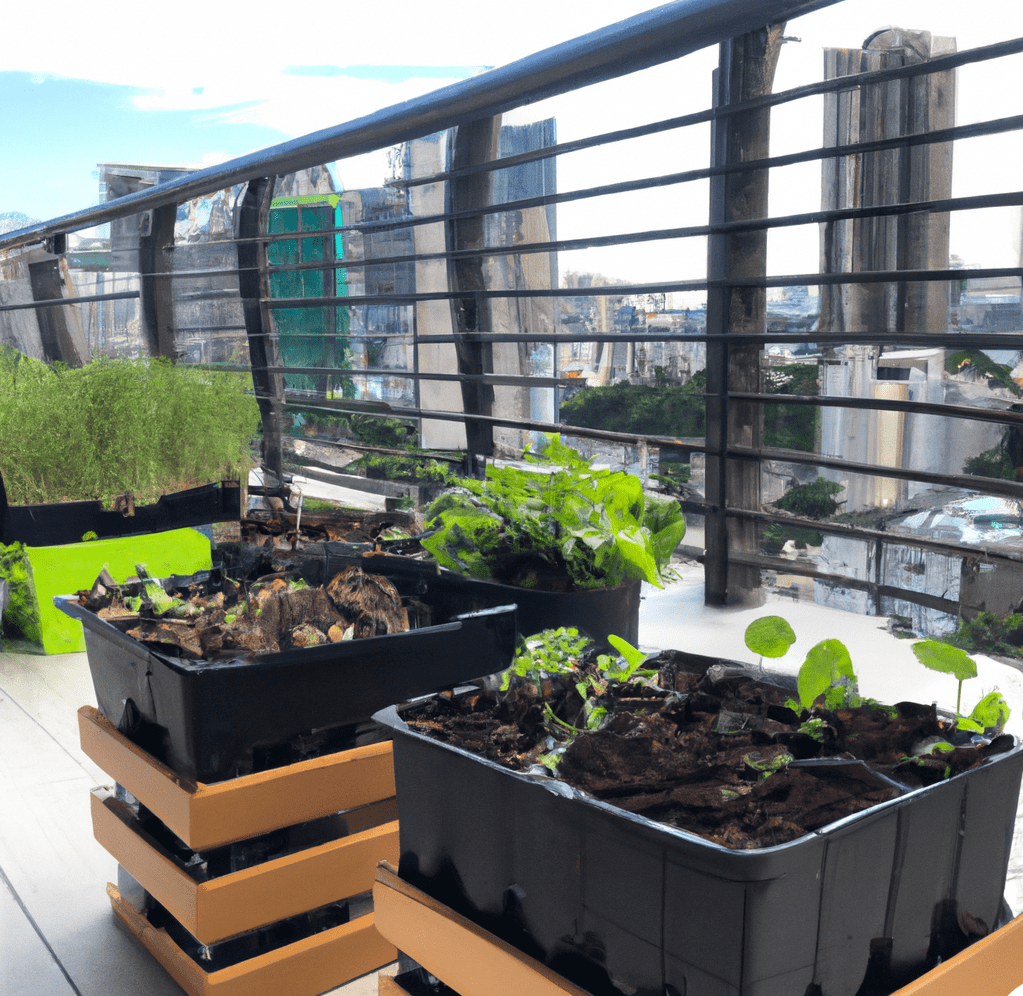
Planning and Preparation
The first step in learning how to start a garden in a condo is the planning and preparation stage. This will guarantee that your garden is both attractive and useful:
- Start by determining how much room you have, whether it be a tiny balcony or a bright window sill. The types of plants that will flourish will depend on how much sunlight each region receives.
- Decide what you want to plant in your garden next, whether it be little vegetables, gorgeous flowers, or cooking herbs.
It’s a good idea to think about the overall aesthetic you want to accomplish because this will influence the plants you choose and the layout of your garden.
Assessing the Available Space
You’ll need to think about how much space is available when you’re learning how to garden in a condo. Consider the potential of each space for growing plants, whether you have a tiny window sill or a big balcony:
- Start by taking measurements of your space and taking into account elements like accessibility, the amount of sunlight it receives, and exposure to wind and other elements.
- You may start considering the kinds of plants you want to grow and the ideal arrangement once you have a solid concept of your available area.
- Remember that hanging baskets and vertical gardening can be useful solutions to make the most of space on small balconies.
Identifying the Best Location for a Garden in a Condo
Whether you’re learning how to start a garden in a townhouse or a condo, location is key. You can find the best location in your garden by thinking about the following factors:
- Sunlight: For most plants to thrive, they need at least six hours of direct sunlight each day. Make sure the place you pick receives as much sunlight as your plants require.
- Natural elements: Consider your exposure to the wind, rain, and other weather conditions. It’s critical to select a site that offers sufficient shelter because some plants are more vulnerable to damage from severe weather.
- Soil: You should think about the soil’s quality if you intend to grow vegetables, herbs, or other greens. It’s possible that you can’t alter the soil in your condo garden, but you can add organic matter to make it more fertile.
- Space: Ensure that you have enough room for your plants and gardening equipment. Think about whether you will enter the garden by a window or a balcony.
Choosing the Right Plants for a Condo Garden
It can be difficult choosing the best plants as you learn how to start a garden in a condo but don’t worry, here are our tips:
- Space: Be sure to pick plants that complement the shape and size of your condominium. Avoid crowding, as this might make it difficult to control diseases and pests.
- Sunlight: Pick plants that will thrive in the quantity of sunlight that your condominium receives. When choosing, be sure to take into account both direct and indirect light.
- Climate: Take into account your condo’s climate as well as the inside characteristics of your condominium. Some plants might not thrive in environments with high humidity or little light.
- Upkeep: Take into account the degree of maintenance you are prepared to offer. Choose species that are suited to your level of gardening experience because some plants take more care and attention than others.
- Fit: If you’re new to gardening, go for plants that are simple to cultivate, such as herbs, greens, and small veggies. Consider moving- and weather-resistant plants that are grown in containers for balconies.
Designing the Garden
As you learn how to start a garden in a condo, designing the entire project is a big part of the process:
- Herbs normally require at least six hours of direct sunlight each day, so if you’re interested in growing them, be sure to pick a location in the garden that gets enough sun exposure.
- Choosing the proper type of soil for your plants is also crucial.
- You might also think about developing an indoor herb garden if your home has a window that gets enough sunlight.
Creating a Layout Plan
Creating a layout plan is crucial for any time of garden. When you think about learning how to start a garden in a condo, you can use the guide below:
- Consider the plants you want to grow and their ideal environments when making your plans. For instance, choose a location in the yard that receives a lot of sunlight if you want to grow vegetables.
- Consider using raised beds or containers if you’re gardening in an apartment to make the most of your available space.
- Consider any physical limitations, such as windows or doorways, while planning your layout, and aim to pick a design that will be both aesthetically beautiful and practical.
Using Vertical Gardening Techniques
If you only have a small balcony or an apartment, vertical gardening is a terrific option for you. By growing plants vertically instead of horizontally, you may maximize your garden space and fit more plants into less space. Since many herbs are suitable for vertical gardening, individuals who are interested in cultivating them will find this method to be extremely helpful:
Consider using a wall-mounted trellis, hanging baskets, or a vertical planter as a starting point for vertical gardening. These methods enhance your garden by adding an appealing and distinctive aspect while also conserving space.
Incorporating Container Gardening
With the help of the popular and adaptable practice of container gardening, you may grow a variety of plants, including vegetables, if you’re learning how to start a garden in a condo.
With container gardening, you have the freedom to select the plants you wish to grow and the container type that best suits your needs and preferences. Make careful to choose containers that are appropriate for the plants you wish to grow and that allow enough drainage when introducing container gardening into your garden.
Consider the amount of sunshine that will be received by each container as well. Some plants demand more sunlight than others.
Using Indoor Gardening Techniques
Whether you are in a house without a yard or an apartment, learning how to start a garden in a condo means using indoor gardening methods.
You can use a variety of indoor gardening techniques, such as growing herbs on sunny windowsills, building an indoor garden with grow lights, or combining hydroponic systems to grow plants without soil.
It’s crucial to pick plants that are adapted to growing indoors and to give them the proper quantity of light, water, and nutrients when starting an indoor garden.
Understanding the HOA Rules and Regulations
Understanding the guidelines established by your Homeowner’s Association (HOA) is essential before moving on and applying everything you’ve learned in how to start a garden in a condo..
The kinds of plants that can be grown, the size and placement of gardens, and the materials that can be used for gardening projects are all things that HOAs frequently have precise rules on. For instance, some HOAs may impose limitations on the cultivation of specific plant species, such as herbs, in front yard gardens or may forbid the use of specific types of soil or growing media.
Also, if you’re thinking about creating an indoor garden, make sure to look into any policies governing the usage of windowsills or other locations for planting.
Lighting and Water
Your gardening efforts might not be successful if your plants don’t have access to enough water and light to develop and thrive. So, keep the following in mind:
- Make sure to select a site that offers the plants you want to grow enough sunlight when growing plants in a garden or on a balcony.
- Consider utilizing grow lights or positioning your pots near a sunny window if you’re growing plants inside or in containers to give them the light they require.
- Water is an essential component of gardening as well, therefore it’s crucial to water your plants deeply and frequently to ensure that their roots can take in the water they require.
- Because containers can dry up rapidly and may need more regular watering than outdoor gardens, it’s crucial to be aware of their watering requirements when container gardening.
How to Provide Adequate Light for Plants in a Condo Setting
It might be difficult for people who live in condos or apartments to provide their plants with enough light but there are some tips to keep in mind as you learn how to start a garden in a condo:
- Starting with plants that can thrive in low light, like some veggies and herbs, is a terrific method for beginners to ensure success.
- You can also assist your plants to get the light they require by positioning them close to a window that gets enough sunlight or by utilizing grow lights.
- Consider employing vertical gardening methods or using hanging baskets to cultivate your plants if you lack room or don’t have a balcony.
Preparing the Soil
Whether you’re growing herbs, veggies, or other plants, preparing the soil is crucial in making sure you know how to start a garden in a condo successfully. Your plants’ roots are rooted in the soil, and the health and growth of your plants can be significantly impacted by the soil’s condition:
- It’s crucial to select the proper sort of soil for your plants, add organic matter, and ensure that the soil is well-drained when preparing the soil.
- Make sure to pick a spot in a sunny outdoor garden with well-drained soil, and think about adding compost, peat moss, or other organic matter to the soil to enhance its quality.
- Choose a high-quality potting mix and check that the containers have enough drainage if you’re growing plants indoors or in containers to avoid water sitting in the soil.
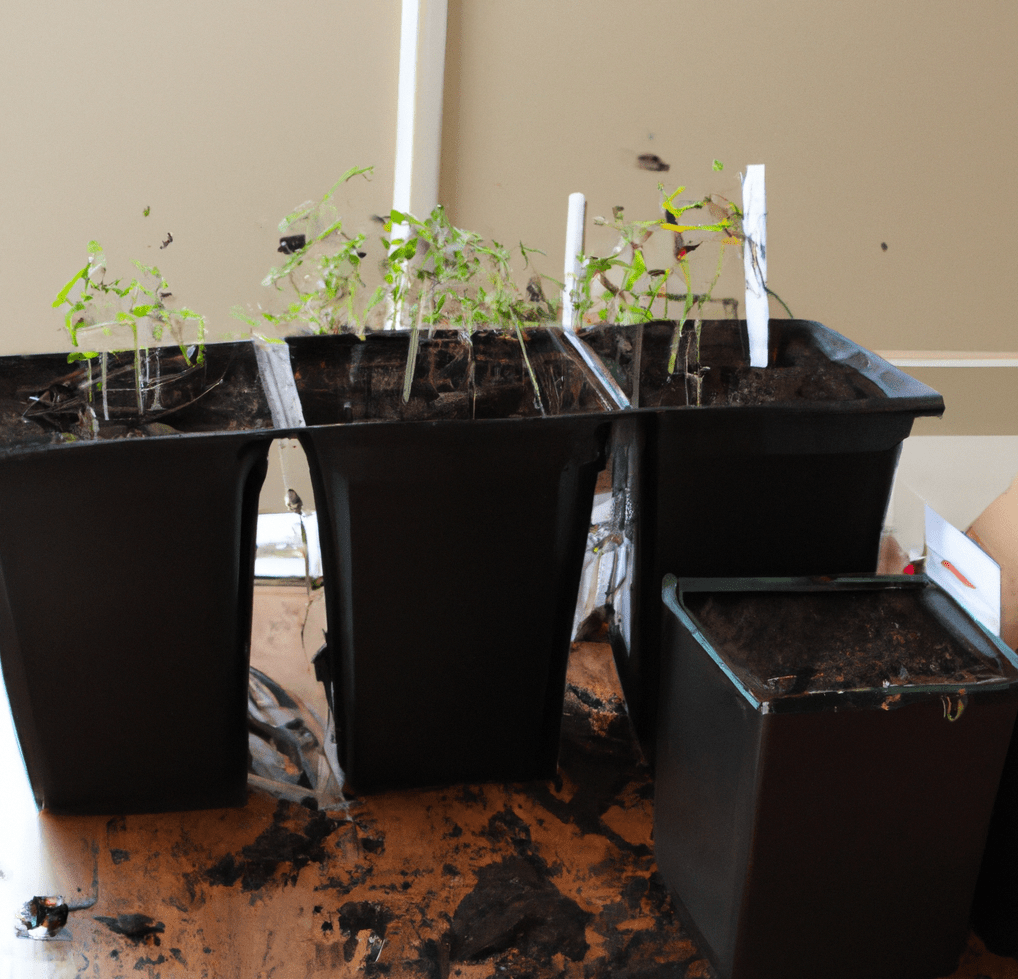
Choosing the Right Soil and Fertilizers
As you learn how to start a garden in a condo, selecting the proper soil and fertilizers is crucial to maintaining the health and growth of your plants. It’s crucial to select the appropriate soil and fertilizers for the particular plants you wish to cultivate because different plants have varying needs for soil and fertilizer:
- When growing plants in containers, be sure to use a good potting mix and think about utilizing slow-release fertilizers to provide your plants with the nutrients they require.
- Consider adding compost, peat moss, or other organic matter to the soil when growing plants in a garden or on a balcony to increase the quality of the soil.
- You should also think about using a balanced, all-purpose fertilizer.
Managing Water Effectively
Water is necessary for the health and growth of your plants, but successfully managing it can be difficult while gardening, especially if you’re learning how to start a garden in a condo. Underwatering can cause withering and stress for your plants while overwatering can cause root rot so think about the following:
- Selecting plants that are suitable for the quantity of light and water available in your garden or balcony will help you manage water more successfully.
- To avoid water sitting in the soil, think about utilizing containers with good drainage.
- Be sure to water your plants thoroughly but sparingly.
- Make sure to give your plants enough light if you’re gardening in a sunny or next to a window area because this may alter how much water they need.
Maintenance and Care
Some pointers to help you maintain a fruitful and healthy garden after learning how to start a garden in a condo include:
- Condo Garden 101: Your garden has to be watered, pruned, and weeded regularly to stay healthy. Make sure to pick plants that will thrive in your garden or balcony’s light and water conditions.
- Dealing With Pests and Diseases: It’s critical to be proactive in spotting and treating pests and diseases because they can seriously harm your plants. Instead of overusing chemical pesticides, take into account using natural pest management strategies like companion planting.
- Knowing When to Harvest Your Plants: Taking care of and maintaining your garden requires knowing when to harvest your plants. While some plants, like greens and herbs, should be picked frequently to promote growth, others, like crops, should be picked only when fully ripe.
Bottom Line: How to Start a Garden in a Condo
Learning how to start a garden in a condo is a lot of work but it can be a lot of fun too. You can grow a flourishing garden in even the tiniest of places by paying close attention to the plants you select, the type of soil and fertilizers you use, as well as the amount of light and water available.
The secret to success is to prepare ahead and take a proactive stance in all you do, from adopting vertical and container gardening techniques to comprehending HOA rules and regulations. Now, you’re ready to start gardening!
FAQs on How to Start a Garden in a Condo
What benefits does learning how to start a garden in a condo have?
Having a garden in a condo has several advantages, like providing fresh herbs and beautiful plants. Even the smallest unit may be transformed into a thriving urban getaway with the correct planning, plant selection, and creative space-saving measures.
What is the first step in starting a garden in a condominium?
It’s critical to comprehend the gardening guidelines established by your Homeowners Association (HOA). These regulations frequently specify the kinds of plants that may be cultivated, the dimensions and locations of gardens, and the permitted materials.
Then you can assess the space that is available, taking into account its capacity for plant growth as well as its dimensions, accessibility, amount of sunlight, exposure to wind, and other environmental factors.
What factors should be taken into account while choosing the ideal spot for a garden in a condo?
Take into account factors like space, soil quality, soil quality, exposure to wind and other weather conditions, and sunlight.
How can I pick the correct plants for the garden of my condo?
Take into account elements like space, sunshine, climate, maintenance, and fit. Select plants that blend in with the size and shape of your condo, flourish in the quantity of sunshine received, are appropriate for your level of maintenance, and are simple to grow for novice gardeners.
What factors should I consider when planning the garden?
Think about the plants you want to cultivate, their optimum environments, the kind of soil they need, and how much sunlight they get. To make sure that your garden is successful, pay attention to factors such as soil and sunlight.
What is the first stage in designing a garden?
The first and most important stage in designing a garden is to create a layout plan. When developing your plans, take into account the plants you wish to grow, their optimal environment, and any physical restrictions.
What elements are most crucial for condo gardening?
When learning how to garden in an apartment, condo, or townhouse, light and water are two of the most important variables to take into account.
How can I give plants in a condo environment enough light?
Start with plants, such as some vegetables and herbs, that can survive in low light, and place them close to a window that receives sufficient sunshine or illuminate them with grow lights.
What role does soil preparation have in gardening?
In gardening, preparing the soil is essential since the state of the soil can have a big impact on the health and growth of your plants. Choose the proper soil type, amend it with organic matter, and make sure the soil is well-drained.
What factors should I take into account while selecting soil and nutrients for my garden?
Because various plants have varied needs, choose soil and nutrients that are suited for the plants you want to cultivate.
When gardening in a limited area, how can I efficiently manage water?
To prevent root rot, choose plants that are appropriate for your environment and water them deeply and frequently without overwatering.


